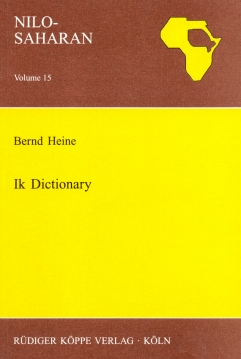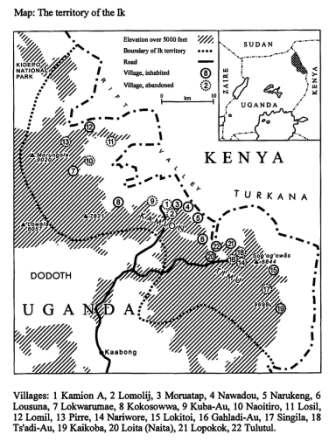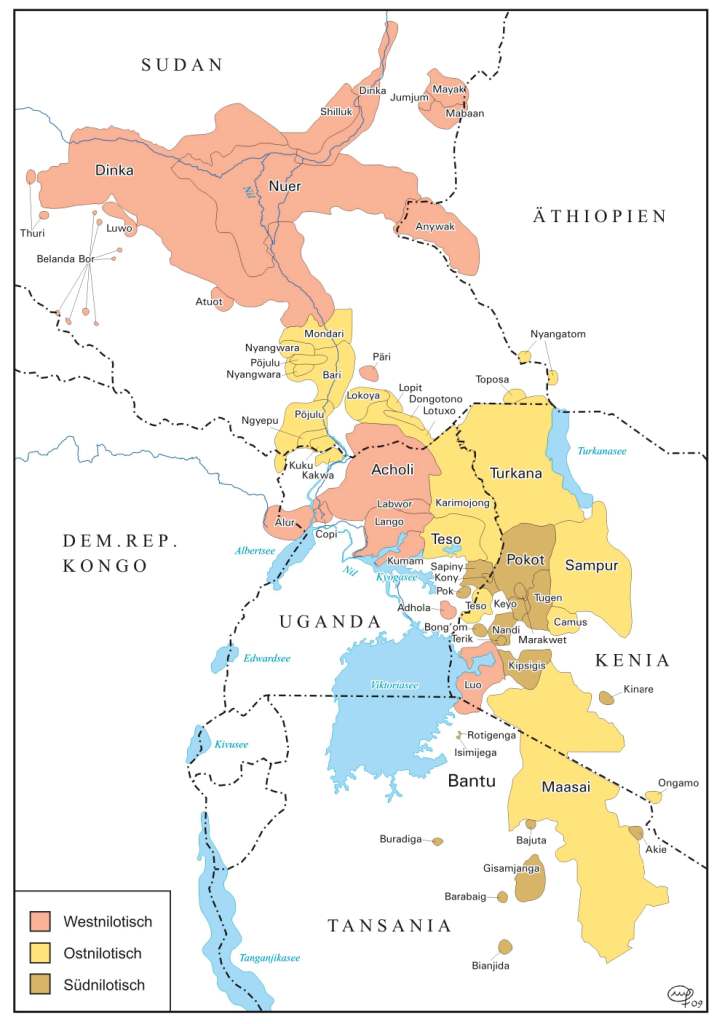


Ik Dictionary
Author: Bernd Heine. Series edited by: M. Lionel Bender †, Franz Rottland †, Norbert Cyffer.
Series: NISA Nilo-Saharan – Studies in Language and Context Volume 15
1999187 pp.
1 map, appendix: notes on folk botany, Ik-Botanical/Botanical-Ik plant lists
Text language(s): English
Format: 160 x 240 mm
330 g
Paperback
€ 39.80
Buy 'Ik Dictionary' as a downloadable PDF document directly from our online shop »
Order 'Ik Dictionary' as print edition »
The present study contains the first Ik-English/English-Ik dictionary. The Ik presently inhabit fourteen villages in north-eastern Uganda. Since 1983 nine villages have been abandoned due to raids made by their Turkana and Dodos neighbours. According to the author’s estimate more than 4.000 Ik were living along the Uganda-Kenya escarpment in 1996. In spite of the dominant role played by agriculture in the traditional economy, hunting and gathering are also important economic activities. Ik is the language of an endangered speech community. So far its grammar has not been described satisfactorily. Together with Nyang'i (Nyangiya) and So (Tepes) Ik forms a group of closely related languages for which the name Kuliak has been proposed.
Ik is a verb-initial language. It differs from all neighbouring languages in having a well-marked case system but lacking categories of grammatical gender. Nouns and verbs are characterized by the presence of a number of derivative and inflectional affixes. Verbs are frequently followed by clitics marking distinctions of tense, modality, person, and other grammatical functions. One of the main phonetic features is the presence of devoiced vowels. The extensive appendix includes notes on folk botany and Ik-Botanical/Botanical-Ik plant lists.
Under these links you will find descriptions of further Ugandan Bantu and non-Bantu languages and cultures, as well as publications on plant taxonomy / ethnobotany:
Accompanying material:
- Die südlichen Lwoo-Sprachen
(ISBN 978-3-89645-137-8 ) - Expérience végétale bolia (C.35b, République Démocratique du Congo)
(ISBN 978-3-89645-037-1 ) - Kasus im Ik
(ISBN 978-3-89645-135-4 ) - Linguistic Landshapes
(ISBN 978-3-89645-085-2 ) - The Noun Morphology of Western Nilotic
(ISBN 978-3-89645-139-2 )
Cross-reference:
- A Modern Runyoro-Rutooro Grammar (J.10)
(ISBN 978-3-89645-023-4 ) - Beyond the Language Issue
(ISBN 978-3-89645-819-3 ) - Honey Hunting and Beekeeping in Adamaoua (Cameroon)
(ISBN 978-3-89645-851-3 ) - Linguistic Salvage – Isubu and Wovea (Bantu A231)
(ISBN 978-3-89645-770-7 ) - Naaho Nubo – The Ways of Our Ancestors
(ISBN 978-3-89645-420-1 ) - Sustainability in Karamoja?
(ISBN 978-3-89645-256-6 ) - Swahili Plants
(ISBN 978-3-927620-89-6 ) - The Akie Language of Tanzania
(ISBN 978-3-89645-714-1 ) - The Mukogodo Maasai
(ISBN 978-3-927620-86-5 ) - The People of the Rwenzoris
(ISBN 978-3-89645-421-8 )
| « back | Print version | [top] |
 Books
Books Audio
Audio Biographies
Biographies Series
Series Festschrifts
Festschrifts Journals
Journals